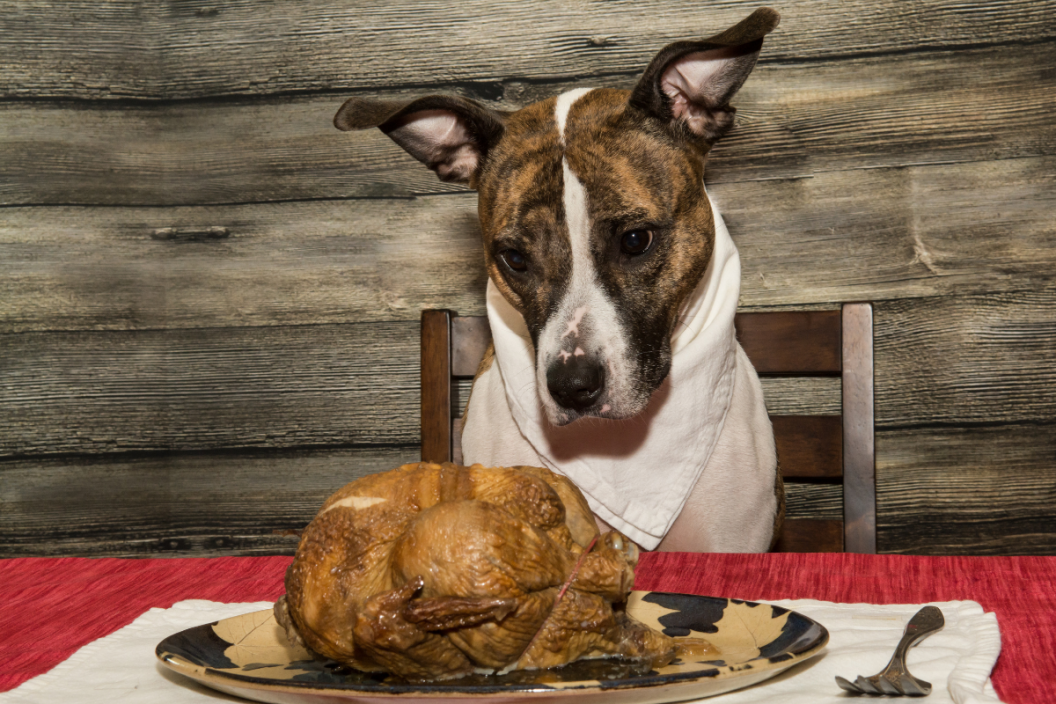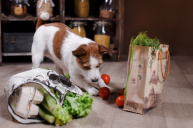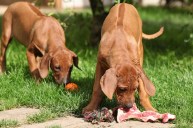I'm sure a lot you reading this can't help but sneak them a little under-the-table turkey. It is no wonder if this holiday is your pet's favorite time of year.
Are there risks to giving your dog turkey after you finish Thanksgiving dinner? You need to be careful that Fido doesn't get cooked turkey, especially prepared certain ways, or chicken bones!
Can dogs eat turkey?
https://www.instagram.com/p/BNNNA66hoT7/
The herbs and spices in which a typical Thanksgiving turkey is basted are toxic to pets. Onion, for instance, is well-known to be poisonous to dogs and cats. Too much garlic can also cause gut complications and gastrointestinal distress among other ailments, like anemia.
In addition to the turkey fixings causing toxicity, the turkey skin is loaded with fat that can be an overload to a pet, especially with how quickly they'll gobble it up. Small, brittle bones of a cooked turkey can break inside the digestive system, resulting in perforations along the GI tract. Too large of turkey pieces and cooked bones can also result in blockages and choking hazards.
Is turkey good for my dog?
Turkey is a great protein source for carnivorous pets, but turkey ingredients included in commercial dog food and cat food diets differ significantly from the meat you're cooking for the family.
Will turkey have any side effects?
https://www.instagram.com/p/Bb3CU2dF-Ld/
While most dogs and cats will beg relentlessly for turkey scraps, they don't realize that a couple of snippets could send them straight to the emergency room with potentially a life-threatening condition, or at least with an upset stomach resulting in diarrhea.
In fact, nearly every emergency veterinary clinic intakes a patient on Thanksgiving who is suffering from pancreatitis due to holiday meal ingestion. Acute pancreatitis can be reversed at an uncomfortable and costly fee, but if not caught in time, it can be fatal or cause chronic complications.
If you decide to give them some turkey, there are rules.
The American Kennel Club tells us there are four rules if you plan to feed your dog turkey.
- Skip the skin. The fat content can cause pancreatitis, and the seasonings can irritate your dog's stomach.
- Onions are toxic to dogs, and garlic is potentially toxic in large quantities. Only feed them the turkey.
- Feed your dog only small quantities of turkey, and talk to your vet about adding food scraps into your dog's diet, especially if your dog has a preexisting health condition, like diabetes.
- Make sure there are no bones in the meat.
Are human foods ok to feed your dog? So the rule of thumb is no turkey bones, green beans are ok, veggies may be fine if they're not cooked in butter, no bone fragments, and no poultry bones.
Instead, try some ground turkey on top of kibble. If your dog has food allergies then skip turkey altogether and provide a safer treat rather then something from your Thanksgiving feast. A few bland treats from their regular diet will be fine and your dog won't know the difference.
Do you your dog turkey? Let us know in the comments below.




